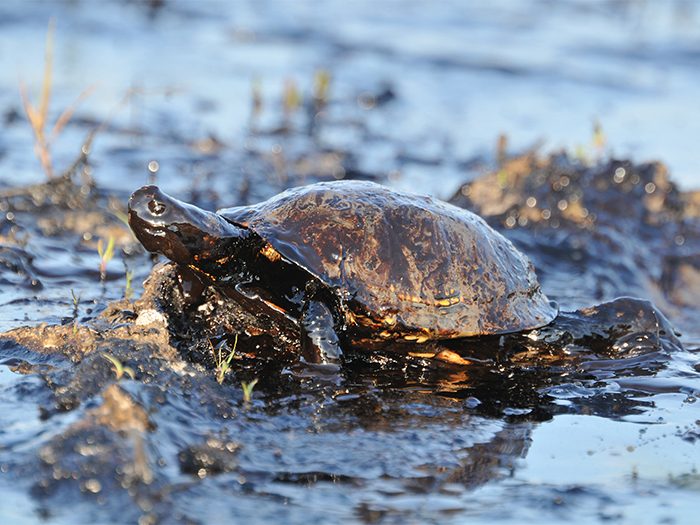The Law
BP Oil Spill Workers Can Still Pursue Claim After Late Filing

On April 20, 2010, the worst oil spill in U.S. history occurred 42 miles off the coast of Louisiana.
A BP Exploration & Production oil rig named the Deepwater Horizon exploded and sank in the Gulf of Mexico, killing 11 people and gushing oil from the ocean floor.
BP worked diligently to mend the error of its ways, deploying cleanup crews to scour the coast of the oil left behind. A number of these BP workers, however, filed a class action suit against the company, alleging they were made ill by chemical exposure during cleanup.
In January 2013, U.S. District Court Judge Carl Barbier approved the suit, which sought compensation and punitive damages for negligence and liability for personal injury and/or bodily injury, including physical, emotional and mental anguish stemming from the cleanup of the spill.
On April 20, 2010, the worst oil spill in U.S. history occurred 42 miles off the coast of Louisiana.
Fabio Concepcion and Mickey Joseph Thiboudaux were named parties in the class action suit. They agreed to the terms set forth in the 2013 ruling, which reserved the right of the class members to later bring a lawsuit against BP if new injuries or illnesses manifested. But before a class member could exercise this right, they needed to submit a Notice of Intent.
Class members had to give BP 10 days’ notice. Then BP would have 30 days to decide whether or not to pursue mediation. If BP chose not to mediate, class members had six months to file suit.
Concepcion and Thiboudaux filed complaints and received notice of BP’s decision not to mediate on May 9, 2017. This gave both until November 9, 2017 to file suit against BP. Both men filed with the court, and the court clerk made docket entries indicating the complaints needed to be refiled as individual lawsuits instead of one complaint.
However, Concepcion’s and Thiboudaux’s counsel never received this information, instead letting the suits fall to the wayside. BP denied coverage based on a time-bar, but the workers brought the case to appeal.
In court, Judge Barbier reviewed the cases and determined the original agreement stood, despite the legal counsel’s error of not filing the suits on time.
Scorecard: Fabio Concepcion and Mickey Joseph Thiboudaux will both be able to pursue their individual lawsuits against BP.
Takeaway: While there may be parameters in place to prevent employees from suing a company, previous court filings may override current policy. &










